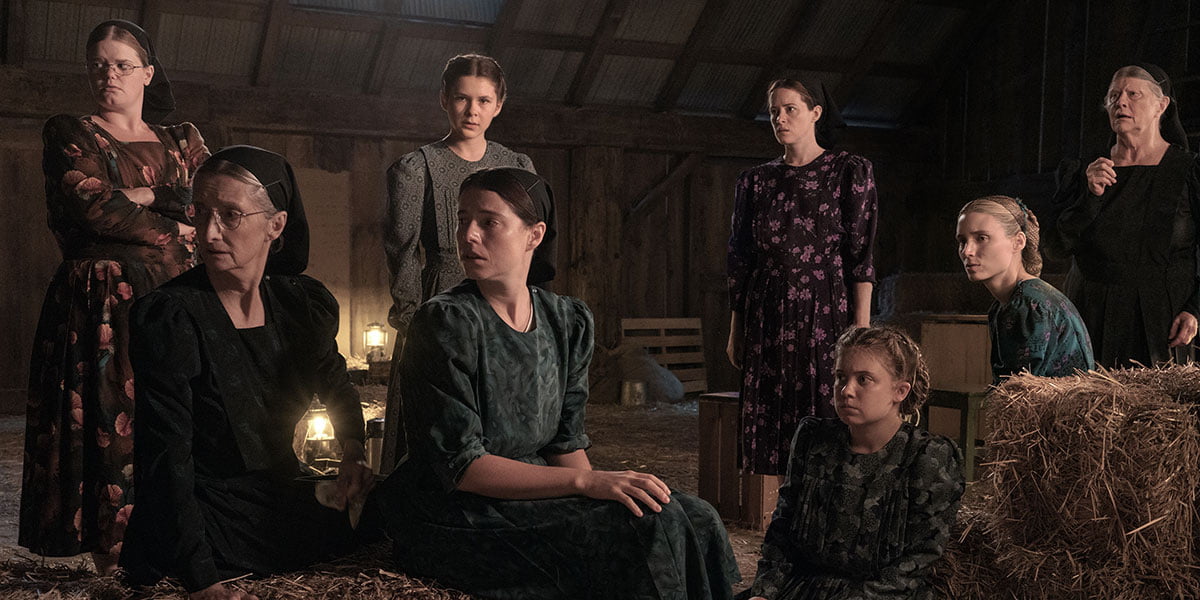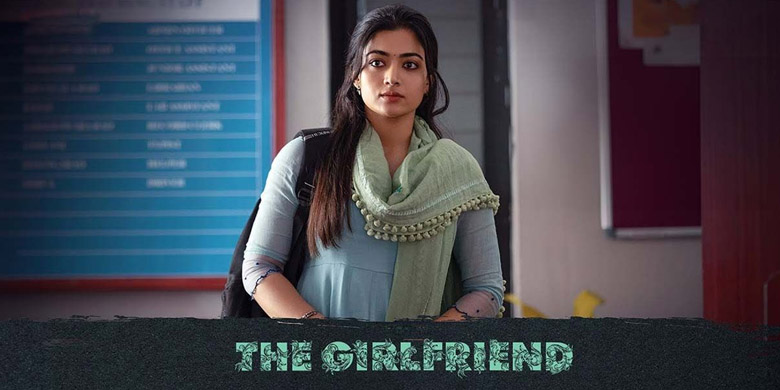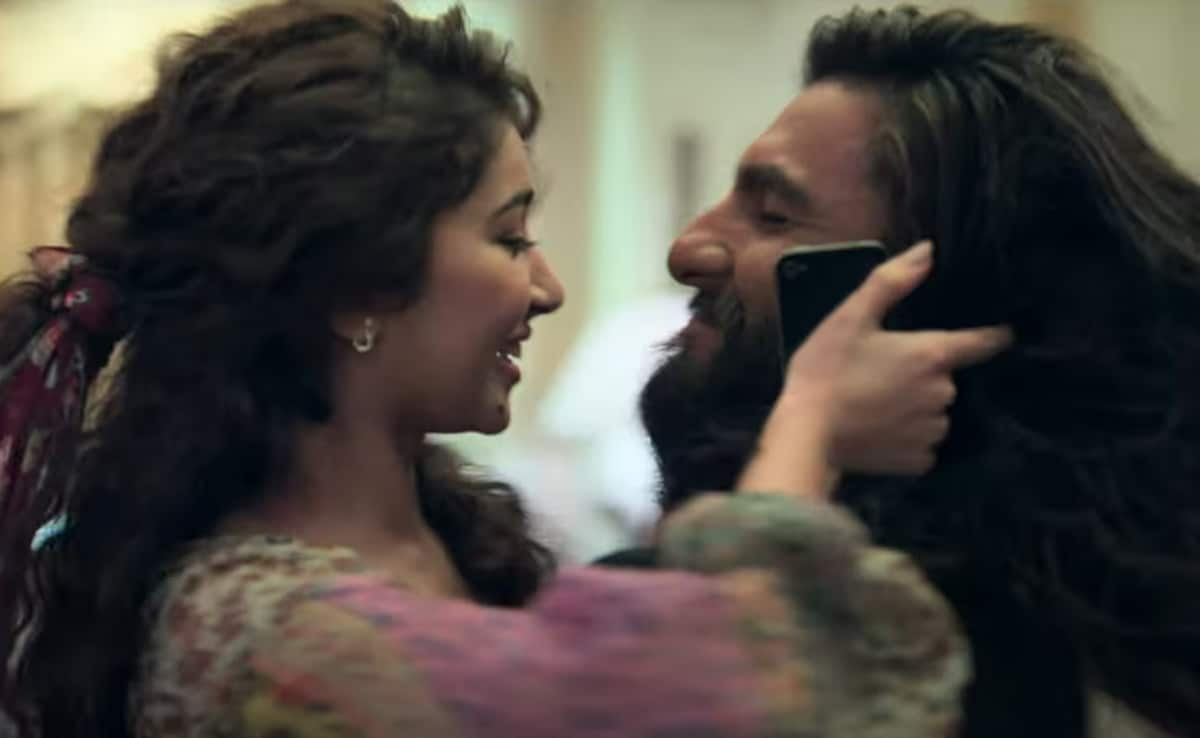Spoiler Alert: This is a review of the film ‘Women Talking’.
Trigger Warning: Mentions Rape and Sexual Assault
“What follows is an act of female imagination”- this line inaugurates Sarah Polley’s emotionally haunting 2022 film ‘Women Talking’. It is not until later that the audience is hit with the total weight of this particular sentence’s significance.
The movie is Polley’s brilliant adaptation of Miriam Toews’s 2018 book by the same name based on real-life incidents uncovered in a Mennonite community in Bolivia. With a stellar ensemble cast, Polley traverses to tell a dark tale of 24 hours in which a select few women of a religious countryside colony sit down in a large barn to talk about the future of all the women of the colony in the aftermath of their horrific insight into the atrocities committed against them.
The movie is Polley’s brilliant adaptation of Miriam Toews’s 2018 book by the same name based on real-life incidents uncovered in a Mennonite community in Bolivia. With a stellar ensemble cast, Polley traverses to tell a dark tale of 24 hours in which a select few women of a religious countryside colony sit down in a large barn to talk about the future of all the women of the colony in the aftermath of their horrific insight into the atrocities committed against them.
Also Read: The Sandman On Netflix Explores Temporal Significance And Power Dynamics
The movie is mostly dialogue; although flashback scenes are scattered throughout to add context, the screenplay, which won Best Adapted Screenplay at the 2022 Oscars, focuses on the dynamic conversation between women of various ages. The narration by young Autje, the teenage daughter of one of the women called Mariche, is addressed to the unborn child of Ona, another one of the women in the movie who is pregnant after having been raped. This is a deviation from the book which has been narrated from the point of view of August, the guy taking the minutes of the women’s meeting.

As a woman watching this movie, the emotional impact is immensely jarring because it is at once – specific and universal. What can you imagine about the wide world outside the familiarity of your home if all your life you have been taught that a foot beyond the boundaries ascribed to you means losing entry into the Kingdom of Heaven? The movie has a deeply religious context to it and questions of faith, forgiveness, and the goodness of god, and the men created in his image are scrutinised engagingly through the lively conversations. The women are victims of drugged sexual assaults perpetrated against them by the men, attacks which for years had been written off as works of Satan, demons, and worse – in the wild hysterical imagination of women.
At one point in the movie, one of the women says that they are not even given the space to think. Unpaid labour in the name of god is the order of the day. The very imminent threat of the presence of men, therefore, grips the everyday reality of these women. So raw is this fear that it translates across the screen for the audience too are left on the edge of their seats hoping that no men, whether it be their husbands or the attackers, return before a decision has been made.
The double-edged opening line starts making more sense slowly. One of the attackers is caught and gradually names of others come to light. None of them really get punished, they are taken to the jailhouse, ironically for their own safety from the hands of enraged women, and it is evident that the other men of the colony would eventually bail them out. The women are asked to forgive these attackers by the elders, religious men in power over the colony, in lieu of asserting their faith. Pretty much like the real world then, the colony’s hostile environment for women is incredibly palpable.
Also Read: Netflix’s Class Is All About Sex, Money And Privilege
At one point in the movie, one of the women says that they are not even given the space to think. Unpaid labour in the name of god is the order of the day. The very imminent threat of the presence of men, therefore, grips the everyday reality of these women. So raw is this fear that it translates across the screen for the audience too are left on the edge of their seats hoping that no men, whether it be their husbands or the attackers, return before a decision has been made.
The whole movie, despite its very specific situation, feels representative of the larger world. Given 24 hours before the men return, the women of the colony decide to vote and the two options of leaving and staying and fighting end in a tie. A debate arises and the group of selected women try to come to a unanimous decision that will affect all.
The characterisation is brilliant, all the women have different perspectives on the same situation, almost as if they are representing particular viewpoints in this world. One is blinded by anger, another by pacifism, and someone is hopeful while someone has lost all hope. Yet all are bound by trauma working inside each of them. The questions raised, hence, are all important. When Ona asks, “Is forgiveness that’s forced upon us true forgiveness?“, everyone takes a pause to think about this piece of truth, willing to see beyond their preconceived ideas. Even a list is drawn up for the pros and cons to every option.
The meeting is extremely organised, democratic and with deep emotions, a testament to women’s humanity and logicality. One might go in thinking that a movie about female resilience in the face of danger would be all about giving up pacifism and choosing to fight but the movie surprises us; it is so much more than just breaking free from the shackles of patriarchy, it is breaking free from the shackles of your own mind, of deconstructing the fundamentals of your upbringing, all the things you have been taught over and over again to forgive and forget.
The bleak colour palette of the movie is in keeping with the sombre content and even the music is minimal, though a spiritual song sung by the women is made to pierce the atmosphere at a very poignant moment, just before they are about to leave their home, the only place they have ever known in their lives. The camera work is also masterfully intentional; aerial shots almost as if to imply god looking down upon the women with blood on the sheets and on their clothes as they wake from another night of violence inflicted upon their bodies.
The women are also aware that when they have liberated themselves, they will have to ask themselves who they are because “if in your entire life you truly felt it didn’t matter what you thought, how would that make you feel? “
The bleak colour palette of the film, Women Talking, is in keeping with the sombre content and even the music is minimal, though a spiritual song sung by the women is made to pierce the atmosphere at a very poignant moment, just before they are about to leave their home, the only place they have ever known in their lives. The camera work is also masterfully intentional; aerial shots almost as if to imply god looking down upon the women with blood on the sheets and on their clothes as they wake from another night of violence inflicted upon their bodies. Such scenes are visceral and quiet, but in that very gaping silence lies the horror.
Also Read: Netflix’s ‘Blonde’ Reinforces Marilyn Monroe As A Sex-Symbol Without Deconstructing The Gaze
Scenes of dried blood, blood on the walls with a woman’s silent screams, the face of the mother coming to know what has happened to her children, the old woman with her teeth all knocked out – all these happenings within four walls are juxtaposed with shots of the sprawling countryside and children playing in the grass with sounds their laughter and buoyancy. All the dialogues are intensely thought-provoking.
When Salome says, “ I will dance on graves and I will burn forever in hell before I allow another man to satisfy his violent urges with the body of my four-year-old child!”, no one is without goosebumps. Women Talking is about women’s fight to gain agency against harm, to gain liberation for exploration of the world and themselves in it, it is about community, sisterhood and above all, courage gained in the name of love. Anyone watching this movie would come out on the other side thinking deeply and hoping for these women to find their way out safely.
About the author(s)
Sayeri Biswas recently graduated with a bachelor’s degree in English from St. Xavier’s College, Kolkata. Whether it’s philosophically
contemplating life or gushing about the most recent book/series she has indulged in, she is always up for a deep conversation. Literature is the great love of her life, and in the future, she hopes to continue talking about all art forms as passionately as she thinks
about them.




